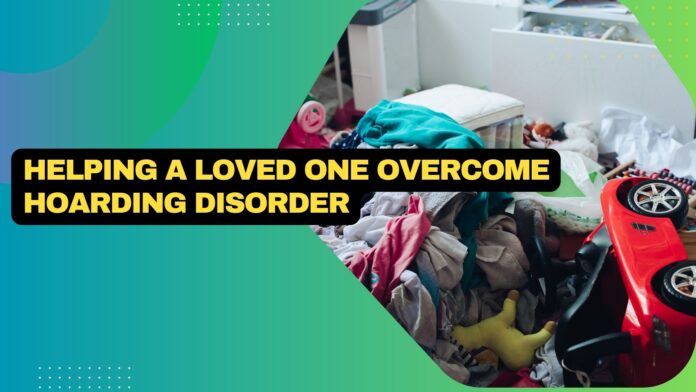Hoarding disorder is a challenging and often misunderstood affliction affecting millions of people worldwide. Hoarders find it difficult to part with their belongings, leading to clutter and turmoil that significantly disrupt their daily lives and negatively impact their families. The effects of hoarding on family members can be profound, as they may experience frustration, helplessness, and even resentment towards their loved ones. Residing in an excessively cluttered and chaotic environment due to hoarding disorder can strain relationships and cause mental and physical stress among family members.
Understanding Hoarding Disorder
Even though the items have little to no practical worth, hoarding disorder is a complex mental health issue characterized by excessive acquisition of goods and difficulty letting go of them. Clutter builds up as a result of disorder, making it difficult to properly use and move around living spaces. Strong emotional attachments to their possessions are common in people with hoarding disease, making the idea of getting rid of things upsetting and stressful.
Hoarding disorder is a complex condition with diverse underlying reasons. Numerous factors, such as past traumas or significant losses, which some individuals take comfort and security in, might contribute to hoarding behavior. Others turn to hoarding as a coping mechanism to handle feelings of loneliness, melancholy, or anxiety. Hoarding is a complex and difficult issue to address because its exact roots are still unknown, but researchers do believe a number of environmental, genetic, and psychological variables are involved. Understanding these complexities is crucial for developing supportive networks for those with hoarding disease.
Approaching the Issue with Compassion
When interacting with a loved one who has a hoarding problem, compassion and understanding are essential. Knowing that hoarding is a mental health issue rather than merely being filthy or disorganized is vital. Your loved one might already be under stress and feeling overburdened by their situation, so adding judgements or criticism won’t be beneficial.
Consider adopting these steps to address the issue with compassion.
- Educate Yourself
Educating yourself about hoarding disorder and its intricacies is essential. Knowing this can help you approach the matter with more empathy and provide them the necessary support along the way.
- Be Non-Judgmental
It’s important to refrain from criticizing or blaming your loved one for their behavior related to hoarding disorder. Instead, show your genuine concern and provide unwavering support for their well-being. This approach will foster a more open and trusting environment, encouraging them to seek help and work towards overcoming their challenges.
- Active Listening
Allow your loved one to express their feelings and thoughts without interrupting or imposing your solutions. Listening attentively can provide them with a sense of validation and understanding.
- Offer Support
Offer your support in the process of seeking help and attending therapy sessions. Let your loved one know that you are there for them through every step of their journey to recovery.
- Encourage Professional Help
Encourage your loved one with hoarding tendencies to seek help from a mental health professional experienced in treating hoarding disorder. Also, suggest the assistance of professional cleaning services specialized in hoarding clean-up to create a less overwhelming decluttering process. Provide unwavering support throughout their journey to overcome hoarding disorder and create a healthier living environment for them and their family.
- Be Patient
Recovery from hoarding disorder is a gradual and challenging process. Be patient and understanding, acknowledging that it may take time for your loved one to make significant progress.
- Focus on Safety
Prioritize safety when addressing the clutter and disarray caused by hoarding. Help your loved one create clear pathways and remove any hazardous materials.
- Celebrate Small Achievements
Celebrate and acknowledge any progress your loved one makes, no matter how small it may seem. Positive reinforcement can be motivating and uplifting during their recovery journey.
- Set Boundaries
To safeguard your personal wellbeing, it’s essential to set limits while being empathetic. Strike a balance between looking out for your loved one and caring for your own emotional wellbeing.
Seeking Professional Help
Many people worldwide are afflicted by the difficult and frequently misunderstood condition known as hoarding disorder. Hoarding disorder patients struggle to part with their possessions, which results in clutter and disarray that can interfere with their daily life and have an enormous effect on their families, including the effects of hoarding on family members. The cluttered living spaces and emotional strain can create a difficult and overwhelming environment for everyone involved. Overcoming hoarding disorder often requires the guidance of mental health professionals with expertise in treating this condition.
Additionally, professional cleaning services can play a crucial role in the process of decluttering and organizing the living space. Trained experts can handle the cleaning with sensitivity and respect, understanding the complexities of hoarding disorder and its effects on the individual and their family.


















